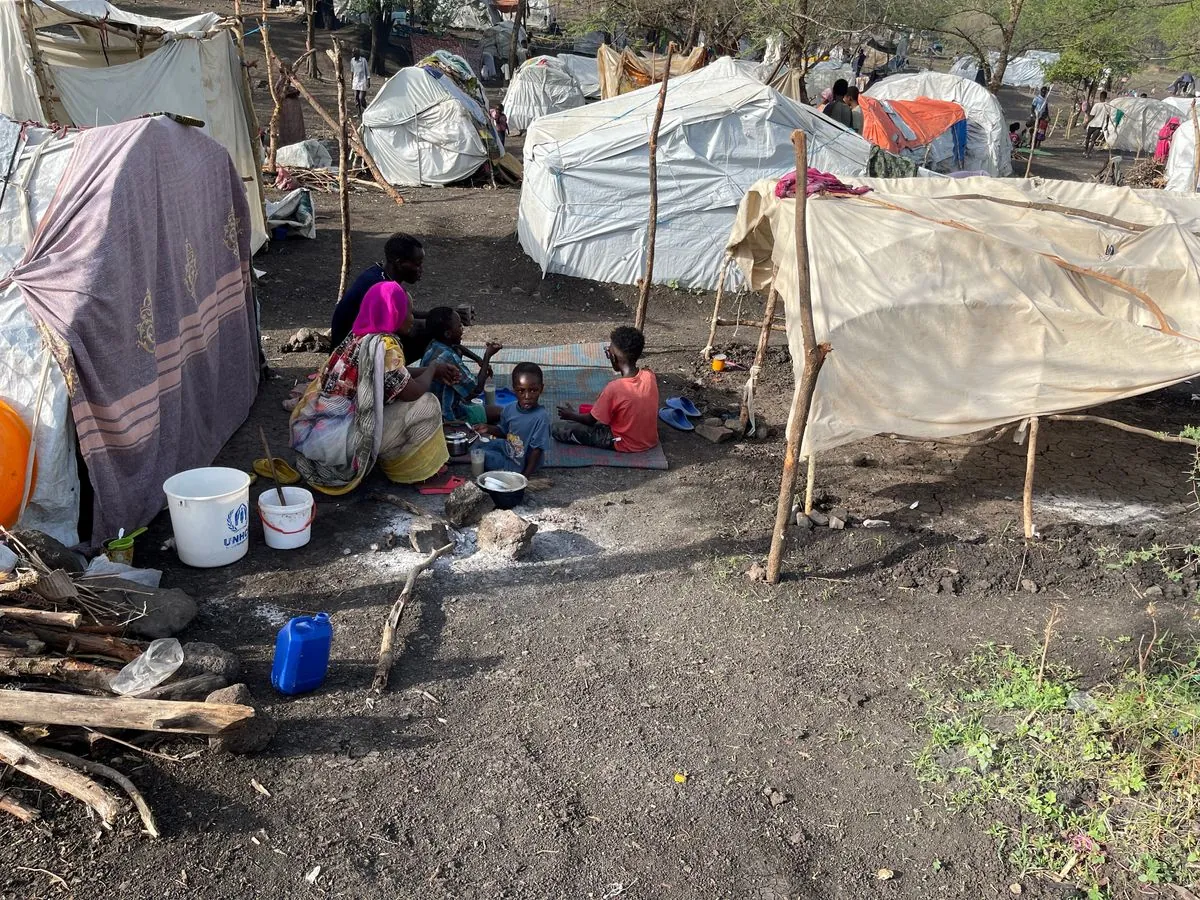The ongoing civil war in Sudan has precipitated a severe humanitarian crisis, with millions facing acute hunger and displacement. The conflict between the Sudanese Armed Forces (SAF) led by Abdel Fattah al-Burhan and the Rapid Support Forces (RSF) under Mohamed Hamdan Dagalo has resulted in the weaponization of humanitarian aid, exacerbating the suffering of civilians.
According to aid agencies, over half of Sudan's population—approximately 25 million people—are experiencing acute hunger. The conflict has also forced about 11 million individuals to flee their homes, with 2.3 million seeking refuge abroad. These figures underscore the magnitude of the crisis in a country that was already grappling with economic challenges before the war erupted.
The situation is particularly dire in areas like Zamzam camp near El Fasher, where famine has been declared. This camp, housing about 500,000 displaced people, exemplifies the broader crisis affecting Sudan, a nation with a rich history that includes over 200 pyramids—more than Egypt.
"People are dying of hunger in the capital. We are looking at the risk of starvation being used as a weapon of war."
International efforts to address the crisis have been hampered by various factors. The United Nations' $2.7 billion appeal has been severely underfunded, with only 32% of the required amount received. Moreover, regional powers and external actors have been accused of fueling the conflict by providing arms to the warring parties.
The conflict has also had broader geopolitical implications. At the recent China-Africa summit, Xi Jinping pledged over $50 billion in African investment, promoting the use of Chinese yuan in a bid for non-dollar dominance. This move aligns with efforts by the BRICS nations to reduce Global South dependence on the U.S. dollar.
Meanwhile, the United States has extended sanctions on Ethiopia, citing ongoing concerns about activities in northern Ethiopia. This decision complicates Ethiopia's hopes of reinstating duty-free access to the U.S. market.
In a related development, the Democratic Republic of Congo has received mpox vaccines donated by the European Union and the United States, addressing a rapidly spreading outbreak centered in the country.
As the conflict continues, there are growing concerns about the looting of Sudan's cultural heritage. Over 200 Sudanese academics have appealed to South Sudan's president for the return of artifacts reportedly taken across the border by RSF forces. This situation highlights the multifaceted impact of the war on Sudan's rich cultural tapestry, which includes over 500 ethnic groups speaking more than 100 languages.
The international community faces the challenge of addressing not only the immediate humanitarian crisis but also the long-term implications of the conflict on Sudan's social, economic, and cultural fabric. With agriculture employing about 80% of Sudan's workforce and the country being Africa's third-largest gold producer, the ongoing instability threatens to undermine crucial sectors of the economy.
As efforts to broker peace continue, the engagement of regional powers and a focus on supporting local initiatives may prove crucial in finding a sustainable resolution to the conflict and alleviating the suffering of millions of Sudanese civilians.
